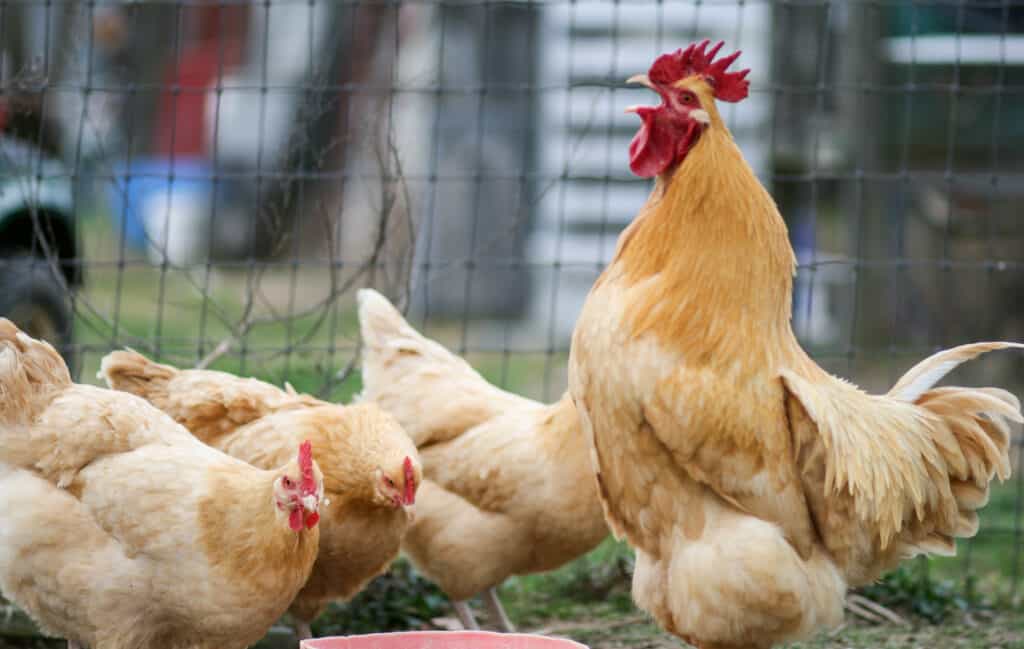Like most bird species, chickens have eyes positioned on the sides of their heads rather than the front. This gives them a surprisingly wide field of vision and, more importantly, helps them to detect the presence of looming predators. Furthermore, as diurnal animals, their eyesight is mostly oriented to daytime viewing. But how well can they see at night? If you’ve ever wondered how well chickens can see in the dark, read on. We’ll touch on the answer as well as some interesting facts about chickens’ eyesight below!
How Well Can Chickens See in the Dark?

Due to the way, their eyes are structured, and how they’ve evolved over millions of years, chickens do not have very good night vision.
©Racheal Carpenter/Shutterstock.com
Overall, chickens cannot see very well at night at all. Despite their powerful tetrachromatic vision that allows them to see ultraviolet light, they have very poor night vision. This is mainly due to them having very few and poorly developed cone cells in their eyes that aren’t very sensitive to low-light viewing.
To be clear, chickens certainly outdo humans when it comes to their perception of color. While we humans have trichromatic vision, the eyesight of chickens is tetrachromatic. This just means they’re able to perceive a much wider field of colors (including UV light) than we can.
Unfortunately, thanks to convergent evolution and the way chickens (and most other birds) developed from the age of the dinosaurs compared to us and mammals, they never evolved to have particularly sensitive night vision. As a result, the rod and cone cells in their eyes are fairly poorly developed, and they can’t see very well in the dark. We’ll touch on rod and cone cells in a bit more detail below.
More on Rod and Cone Cells…
To put it simply, the rod cells and cone cells in an animal’s eyes are largely responsible for the perception of color and differentiation of light. They act as photoreceptors, capturing light and converting it into electrical signals via a process called phototransduction.
According to Mike, the Chicken Vet, chickens “Have very few cones, and they are not especially sensitive.” Cone cells work by responding quickly to changes in light intensity and can greatly increase an animal’s overall visual acuity. Since chickens and many other birds are lacking in the cone cell department, their ability to sense changes in light and darkness is similarly lacking.
On the bright (no pun intended) side, however, as we touched on earlier, chickens have tetrachromatic vision with a double-cone structure in their eyes. This makes them uniquely well-suited to very quickly detecting nearby changes in color and motion, though not quite as well as birds of prey like, say, hawks and falcons.
This double-cone, motion-sensitive structure is also incredibly helpful for chickens to spot food like wriggling insects on the ground and small bits of chicken feed, nuts, seeds, etc., while foraging. This is also part of why chickens tend to be rather flighty and easily spooked–they’re just a lot faster at sensing motion than we are.
In fact, the eyesight of birds–chickens included–is incredibly complex. They’ve merely evolved to have better eyesight for daylight viewing (and motion-sensing) rather than at night!
The photo featured at the top of this post is © Racheal Carpenter/Shutterstock.com
Thank you for reading! Have some feedback for us? Contact the AZ Animals editorial team.






